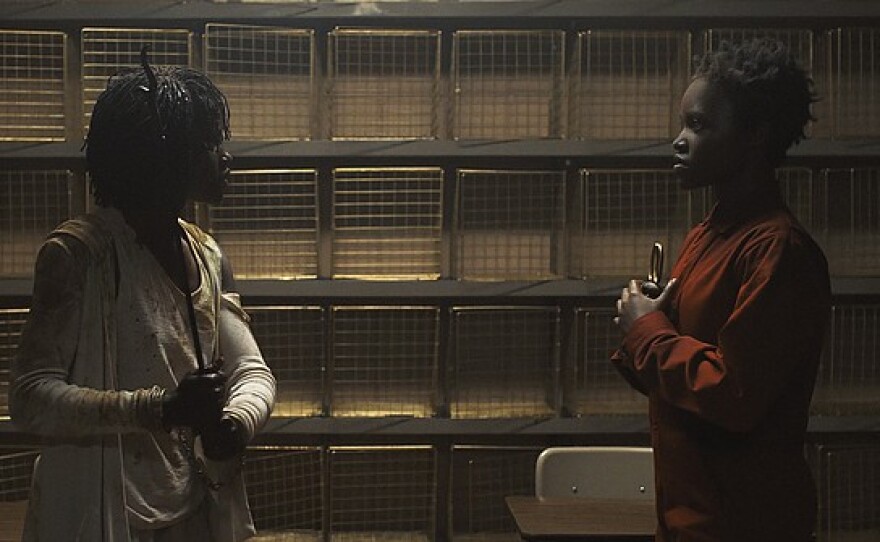Jordan Peele’s "Us" has been killing it at the box office and stirring a lot of discussion about what it all means. So this episode of Cinema Junkie will attempt to dissect the film to explore its hidden meanings (warning: spoilers ahead).
That’s right, we are going to talk about the twists and turns in "Us" because you have had more than a week to get to a theater to check out this eagerly anticipated film.
Reviewing the movie was nearly impossible without revealing something that should be kept secret, so this podcast episode is for those of us who have seen the film and are dying to discuss it with other people.
The person I chose to talk about those many meanings is John Jennings, UC Riverside professor of media and cultural studies. I spoke with him on an earlier Cinema Junkie podcast and urge you to check it out so you can hear him talk more about ethnogothic horror and his new collective "Scary Black Folks."
Peele had his cast members watch 10 films in preparation for making “Us.” So here's the list if you want to explore the film even more.
- “Dead Again” (scissors and loss of memory);
- “The Shining” (threat to the family unit and from within it, and maybe to see the trope of the “magical Negro” as a contrast to Peele’s film);
- “The Babadook” (psychological horror, dealing with trauma and grief, mother character);
- “It Follows” (sense of dread, seductive visuals by the same cinematographer Mike Gioulakis);
- “A Tale of Two Sisters” (twins);
- “The Birds” (sudden and inexplicable terror from something we never saw as a threat, Hitchcock style);
- “Funny Games” (home invasion);
- “Martyrs” (gore, suffering);
- “Let the Right One In” (perhaps about how the past impacts the present) and;
- “The Sixth Sense” (things are not always what they seem, twist ending).


